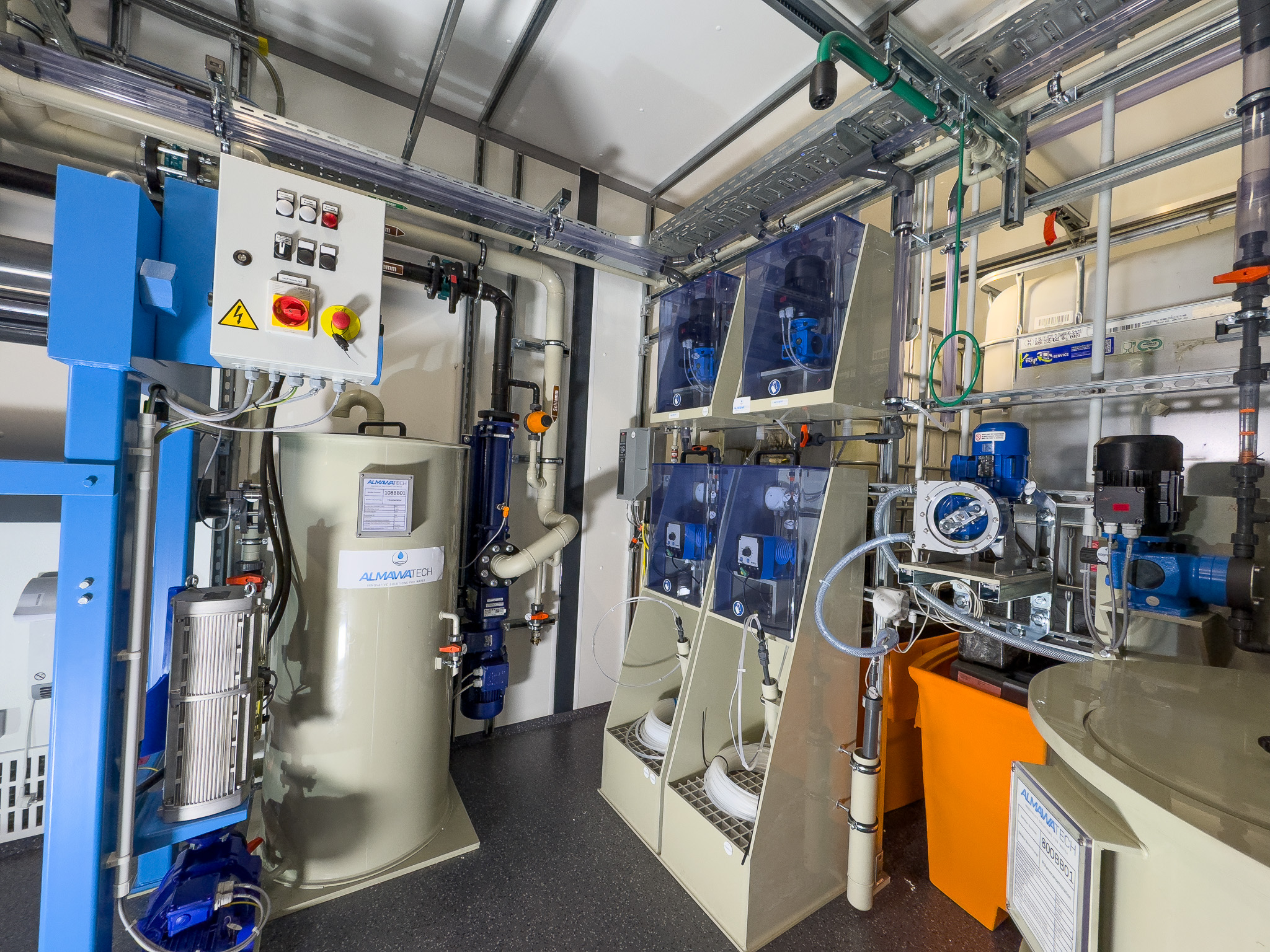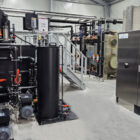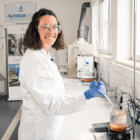Progressing cavity pumps are positive displacement pumps that are characterized by their ability to reliably pump highly viscous, solid-containing and abrasive media. They are widely used in industrial water and wastewater treatment as they offer robust and flexible solutions for complex pumping requirements. Their function is based on precise cooperation between the rotor and stator, which ensures a continuous, pulsation-free flow.
Table of contents
Technical background
1. design features
- Rotor: The eccentrically mounted rotor is usually made of metal, e.g. stainless steel, and moves in a spiral path.
- Stator: The elastic housing of the stator, often made of resistant rubber materials, encloses the rotor and forms sealed conveying chambers.
- Articulated joint: A stable mechanism connects the rotor to the drive in order to transmit the eccentric movements precisely.
2. functional principle
The rotation of the rotor continuously creates chambers that move the medium from the suction side to the pressure side. This enables a constant volume flow regardless of the pressure.
3. conveying parameters
- Pressure: Typically up to 48 bar, depending on the application.
- Viscosity: From low-viscosity media to highly viscous substances such as slurries and pastes.
- Delivery rates: Between a few liters and several cubic meters per hour.
Areas of application
Sludge conveying
Dewatered sludge, which often contains abrasive components such as sand or fibrous materials, is transported efficiently in wastewater treatment plants.

Photo: Progressing cavity pump for conveying precipitation sludge from our CP system ALMA CHEM MCW into our chamber filter press ALMA CFP
Chemical dosing
For the precise dosing of precipitants, milk of lime or polyelectrolytes in water treatment plants.
Abrasive media
Progressing cavity pumps are ideal for media with a high solids content, such as ash-water mixtures or sludge from metal processing.
Food and beverage industry
For viscous substances such as fruit purees, whey concentrates or sauces where gentle conveying is crucial.
Advantages
- Pulsation-free delivery: Suitable for processes that require uniform dosing.
- High abrasion resistance: Durable even with abrasive media.
- Self-priming: Can be operated without an additional priming mechanism.
- Flexibility: The flow rate and pressure can be regulated by adjusting the speed.
Challenges
- Rotor and stator wear: Regular maintenance is required, especially with abrasive media.
- Sensitivity to excess pressure: Excessive system pressure can shorten the service life of the stator.
ALMAWATECH solutions
ALMAWATECH integrates progressive cavity pumps into customized wastewater treatment and water treatment plants. Depending on the application, these pumps are precisely selected and adapted to meet the specific requirements. With our comprehensive range of services, from installation to maintenance, we ensure that our customers' systems operate reliably and efficiently.
Conclusion
Progressing cavity pumps are essential components in industrial water and wastewater treatment. They combine robustness and flexibility and enable the efficient transportation of highly viscous, abrasive or solids-containing media. Thanks to their pulsation-free and gentle pumping, they make a decisive contribution to process stability. With customized solutions and a wide range of applications, from sludge conveying to chemical dosing, they offer a reliable technology for a variety of challenges in industrial water technology. ALMAWATECH supports its customers with customized systems and comprehensive service.
For further information on our products, please feel free to contact us at any time!








